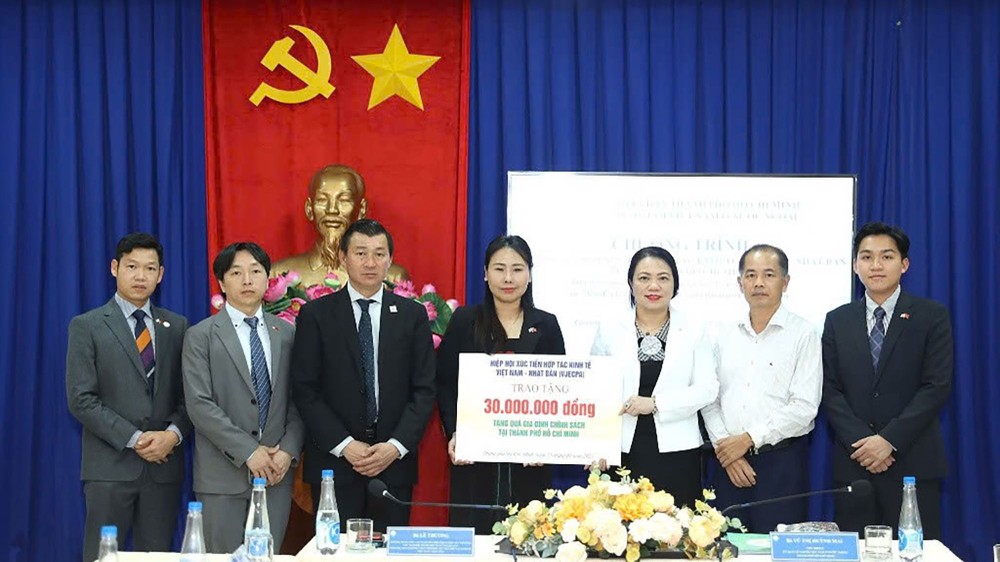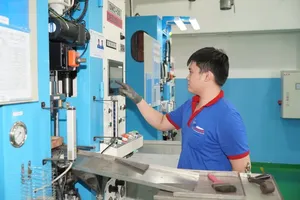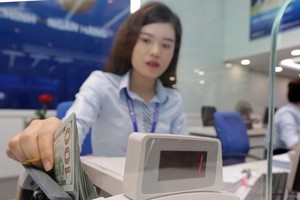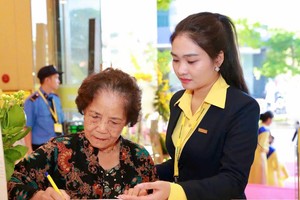The increase in remittances in the city is notably 1.73 times higher than the foreign direct investment (FDI) capital realized during the same period.
This significant influx of capital presents a remarkable opportunity for the city's growth. Experts suggest that with proper guidance and strategic channeling, these remittances could be transformed into crucial investment capital, fueling development in key sectors such as infrastructure, healthcare, education, innovation, and sustainable development.

For many years, remittances have primarily been used for consumption-related purposes such as daily living expenses, education, healthcare, or individual investment in real estate. These are legitimate and widespread needs. However, as Ho Chi Minh City sets its sights on becoming a regional hub for finance and innovation, keeping remittances outside the spheres of production and technology amounts to a missed opportunity.
Remittances are more than just money sent by loved ones from afar—they embody the trust, knowledge, and aspirations of millions of overseas Vietnamese for the country’s future. This is a long-term, stable source of capital that comes without the conditionalities attached to ODA or FDI. In an economy increasingly "thirsty" for medium- and long-term investment in infrastructure, technological innovation, and green transformation, remittances should be viewed as a strategic resource that must be harnessed effectively.
There are several reasons behind the recent surge in remittances. First is the post-Covid economic recovery in Asia especially in countries and territories with large Vietnamese communities such as South Korea, Japan, Taiwan, and Singapore, which collectively account for 56 percent of total remittances to Ho Chi Minh City. Flexible exchange rate policies, transparent money transfer systems, a range of receiving channels, and improvements in the financial infrastructure have all strengthened the trust of overseas Vietnamese. Moreover, as the diaspora sees positive transformations back home, they are increasingly motivated to contribute-an invaluable psychological factor.
To channel remittances more effectively, Ho Chi Minh City must rethink its strategy. Rather than relying on broad appeals, the city should develop targeted, easy-to-understand financial instruments that resonate with its overseas community. These could take the form of municipal bonds or investment vehicles focused on priority sectors like education, healthcare, and technological innovation. Strategic initiatives might also include funding for affordable housing, green urban development, and smart logistics infrastructure. To inspire confidence and secure sustained investment, these products must be backed by compelling incentives, strong risk safeguards with open and transparent communication.
In parallel, it's crucial to establish a framework for overseas remittances to be channeled into investments. Ho Chi Minh City should create an Overseas Vietnamese Investment Support Center. The center would serve as a hub, providing legal guidance, procedural support, and detailed information on relevant projects. It would also foster connections between overseas Vietnamese and local enterprises, government agencies, and financial institutions—bridging communities and facilitating meaningful collaboration.
The center should establish representative branches within key overseas Vietnamese communities, including the United States, Australia, South Korea, and Japan - these countries are noted for their consistent and substantial remittance inflows to Vietnam. Creating a “soft one-stop shop” framework for remittance-based investment, while ensuring the protection of overseas Vietnamese assets and legal rights, is essential to unlocking this capital stream sustainably.
The importance of changing the current policy cannot be overstated; it is essential to view this not merely as a financial transaction but as a means to foster knowledge and promote sustainable development. The collection of investment types should be seen as a long-term strategy, ensuring that the sources of funding are not limited to short-term gains. A clear recommendation for clients is to minimize transportation costs, whether through direct investment or by prioritizing initial investments in areas with high potential for sustainable development.
International experience shows that countries like Vietnam, China, and the Philippines have distinct policies for investment types, particularly in foreign investment, and the results indicate that it is not just about attracting funds but also about enhancing knowledge, connecting with sustainable practices on a national level.
For sustainability, it is crucial to integrate investment types into the development strategy of local governments, aligning them with initial investments, FDI, and regulatory frameworks. Incorporating investment types into comprehensive planning across key sectors such as green transformation, healthcare, education, and creative industries will help local governments improve their investment environment while ensuring that investment types actively participate in addressing human resource challenges and enhancing sustainable value.
Trust is the cornerstone. Ho Chi Minh City must affirm its role as a reliable destination where remittance funds are deployed responsibly, aligned with the right beneficiaries and development objectives. To achieve this, the city must uphold transparency in fund management and actively engage overseas Vietnamese in overseeing and assessing investment outcomes.
In parallel, regular dialogue platforms between government authorities, the business sector, and the global Vietnamese community should be maintained. Only through the creation of a transparent, inclusive, and professionally governed ecosystem can trust be converted into tangible and impactful action.
If FDI represents capital from foreign enterprises, then remittances are the capital of global Vietnamese people who, though far away, always harbor a desire to contribute to their homeland. If Ho Chi Minh City knows how to guide and effectively leverage this resource, the city will not only expand its own development space but also contribute to creating a strategic competitive advantage for Vietnam on its journey into the future.
The current context presents favorable conditions for overseas Vietnamese to realize their patriotism through concrete contributions to national development. The implementation of Resolution No. 68-NQ/TW on developing the private economy as a crucial driving force, along with Resolution No. 57-NQ/TW on developing science, technology, and innovation, has created a more open policy framework for investment activities, knowledge transfer, and international cooperation. This is an opportunity for Ho Chi Minh City to attract overseas Vietnamese not only as financial investors but also as accompanying partners in innovation and the creation of sustainable value.
























